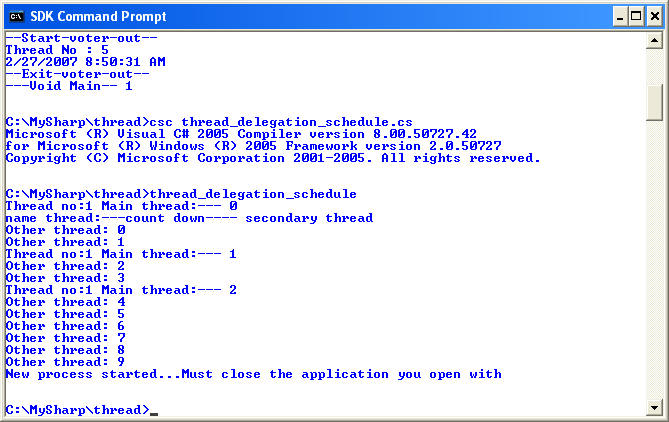Note this
- delagate a job to a
- thread ThreadStart job = new ThreadStart(cycle.Count);
- Create a thread and link with delegation
- Thread thread = new Thread(job);
- You may name the thread (optional)
- thread.Name ="secondary thread ";
- Start the thread
- thread.Start();
Beginning in version 2.0 of the
.NET Framework,
// it is
not necessary to create a delegate explicityly.
// Specify
the name of the method in the Thread constructor,
// and the
compiler selects the correct delegate. For example:
//
// Thread
newThread = new Thread(Work.DoWork);
using System;
using System.Threading;
using System.Diagnostics;
// csc thread_delegation.cs
//also imples to ThreadStart examples
public class Test
{
static void Main()
{
thread_count cycle = new thread_count();
ThreadStart job = new ThreadStart(cycle.Count);
//job.Name= "Master counter" ;
//copy to anothr thread
Thread thread = new Thread(job);
thread.Name ="secondary thread ";
thread.Start();
for (int i=0; i < 3; i++)
{
Console.WriteLine ("Main thread:------- {0}", i);
Thread.Sleep(1000);
}
Console.ReadLine();
}
}
public class thread_count
{
public void Count()
{
Console.WriteLine ("name thread:---count down---- {0}",Thread.CurrentThread.Name.ToString());
for (int i=0; i < 10; i++)
{
Console.WriteLine ("Other thread: {0}", i);
Thread.Sleep(500);
}
//Process newProc = Process.Start("iexplore.exe");
Process newProc = Process.Start("notepad.exe");
Console.WriteLine("New process started...Must close the application you open with");
newProc.WaitForExit();
newProc.Close();
}
}
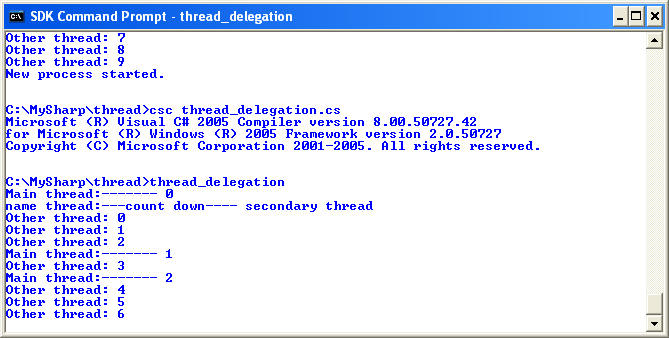
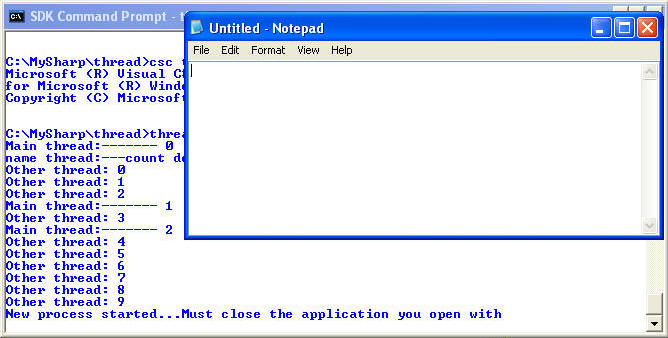
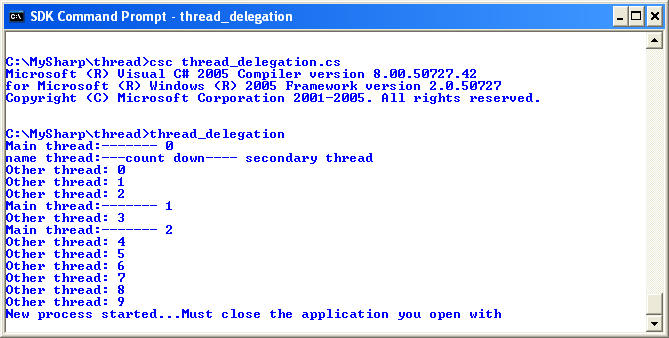
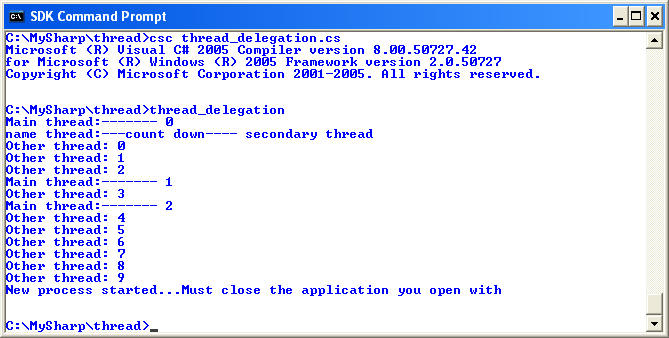
using System;
using System.Threading;
using System.Diagnostics;
// csc thread_delegation_schedule.cs
//also imples to ThreadStart examples
public class Test
{
static void Main()
{
thread_count cycle = new thread_count();
ThreadStart job = new ThreadStart(cycle.Count);
//job.Name= "Master counter" ;
//copy to anothr thread
Thread thread = new Thread(job);
thread.Name ="secondary thread ";
thread.Start();
for (int i=0; i < 3; i++)
{
Console.Write("Thread no:{0}",Thread.CurrentThread.GetHashCode().ToString());
Console.WriteLine (" Main thread:--- {0}", i);
//pause intermitantly that allows another thread to work
//with in the life time of this thrad
Thread.Sleep(1000);
}
Console.ReadLine();
}
}
public class thread_count
{
public void Count()
{
Console.WriteLine ("name thread:---count down---- {0}",Thread.CurrentThread.Name.ToString());
for (int i=0; i < 10; i++)
{
Console.WriteLine ("Other thread: {0}", i);
Thread.Sleep(500);
}
//Process newProc = Process.Start("iexplore.exe");
Process newProc = Process.Start("notepad.exe");
Console.WriteLine("New process started...Must close the application you open with");
newProc.WaitForExit();
newProc.Close();
}
}
